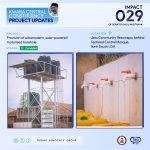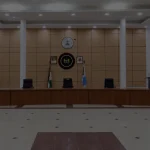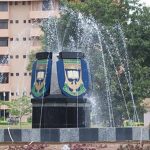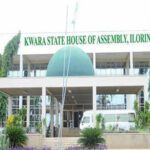Amid clamours for a shift in the political zone that would produce the next governor of Kwara State in 2027, former Majority Leader of the State House of Assembly, Chief Iyiola Oyedepo, has canvassed a people-oriented governor rather than sliding to a sectional arrangement.
But another former leader of the House, Chief Wole Oke, argued that it would be unjust for the state to jettison the demand for the emergence of a governor from Kwara North Senatorial District that is yet to produce a governor for the state since the restoration of democracy in the country 25 years ago.
Both Oyedepo and Oke are chieftains of the All Progressives Congress (APC). But Oyedepo is from Isin Local Council in Kwara South Senatorial District while Oke hails from Moro Local Council in Kwara North Senatorial District of the state.
Oyedepo, the arrow head of the ‘Otoge’ political movement that ushered in the incumbent Governor, AbdulRahman AbdulRazaq, told The Guardian that a heterogeneous state like Kwara should jettison the idea of rotational governance as it could plunge it into an unprecedented political turmoil.
Recall that since the creation of Kogi State out of Kwara, Kwara South Senatorial District, with seven local councils (Ekiti, Oke-Oro, Offa, Ifelodun, Irepodun, Isin and Oyun) out of the existing 16, has the largest number of council areas in the state. The remaining senatorial districts, Kwara North has five local councils (Baruten, Edu, Pategi, Kaiama and Moro) while Kwara Central has four local councils (Asa, Ilorin East, Ilorin South and Ilorin West).
The Yoruba ethnic group forms the dominant population of the state, spreading across 13 out of the 16 councils. The minorities heavily populate Edu, Baruten, Lafiagi and Kaiama local councils. Pockets of other tribes are however found across other local councils in the state.
A group of political activists under the aegis of Kwara South Mandate (KSM), led by one Damilare AbdulMalik, in a chat with The Guardian, stated that the people of Kwara South Senatorial District would before 2027 begin to assert their identities and dominance as the ones with the highest number of local councils in the state and prove it in subsequent governorship elections via block voting.
“Enough is enough. We should start using our numerical strength to determine who should emerge as the governor of our dear state. We must wake up from our deep sleep. We must be more united and cast the bulk of our votes for candidates of our district,” AbdulMalik said.
Since 1999, people from Kwara Central had presided over the affairs of the state for 17 years. People from the district had emerged three times as the governor. These are Mohammed Alabi Lawal, (four years), Bukola Saraki (eight years) and the incumbent, AbdulRazaq (five years so far), who is spending his second term in office. The only interregnum was the eight years spent by former governor Abdulfattah Ahmed, who hails from Ifelodun Local Council of Kwara South Senatorial District.
Many political pundits in the state, citing fairness and equity, seem to favour the emergence of the next governor after the expiration of AbdulRasaq’s tenure in 2027 from Kwara North Senatorial District, which has since the restoration of the current democracy not produced a governor for the state.
But many prominent politicians from the Central District, where the incumbent hails from, appear to be interested in succeeding him in 2027. They seem to be non-interested in any arrangement to cede the governorship slots to any of the senatorial districts.
According to sources, gladiators from the zone believe that in a true democracy, no one is unjustifiably deprived of his political aspirations. It was learnt that they also argue that a consensus arrangement would not bring out the best to govern the 58 years old state.
An Ilorin-based social critic, Abdulkarim Olola-Kasum, said there should not be a room for any consensus arrangement at all while considering the choice of the next governor for Kwara.
Olola-Kasum, an octogenarian, added: “Let all the aspirants come to the field, market themselves and leave the voters to elect whoever they want. That is the beauty of democracy. That is exactly what we fought for during the dark days of the juntas. I don’t want to start hearing that it is the turn of anybody to be governor or that some people should give room for others. That is a pseudo democracy and not the real one.”
Amid the permutations, political calculations, claims and counter claims, Oyedepo said: “My opinion on whether or not the district with the highest number of local councils should use its numerical strength to waltz its way to the governorship seat is not a rocket science issue. But I am of the opinion that if the government had been fair, just and equitable since 1999, I don’t think by now we should be talking about governorship rotation.
“In the distribution of social amenities to all Kwarans, successive governments had not been fair since 1999. It should not be the numbers of the local councils we have that should be the issue now. I am from the senatorial district with the highest number of local councils. But my belief is that anyone nurturing the ambition of governing our state must have the needed clout across the entire three senatorial districts of the state.”
Oyedepo, who is also the Akogun of Igbomina land, added: “It is not good to have a senatorial district governor. In a heterogeneous society like ours, the governor must be the governor of Kwara by spreading his tentacles across the existing senatorial districts. But look at the issue of justice, equity and fairness I earlier expressed. It must be embedded in our art of governance to boost the status of our communities and their people. By 2027, we would have spent 28 years under this republic. As at this year in view, Kwara Central would have spent 20 good years as the governor of our state.
“Abdulfattah Ahmed from Kwara South spent the remaining eight years on the saddle. Among them all, Ahmed was fair under the principle of equity. He came out and said, after him, it was not the turn of his senatorial district to produce the next governor of the state.
“By and large, I think those making strong propositions for Kwara South Senatorial District as where the next governor should emerge from might not be totally wrong. But a good material can come from any part of the state. That should be our focal point as a growing democracy.”
For Oke, the demand of the Kwara South group was “selfish”, noting that the searchlight for the next governor of the state should be beamed at the Kwara North Senatorial District.
Oke, who is the Jagunmolu of Shao, in Moro Local Council noted: “Let me refer you to the pivotal issue in the communiqué released at the end of the April 2024 summit organised by the youth of Kwara North Senatorial District. These people have five local councils but they opined that they had been buried alive politically since 1999. They resolved that for fairness and equitable justice, the Kwara South and the Central should support a northern governor for the 2027 election.”
While describing the northern governorship issue as non-negotiable, Oke however canvassed a shift of either the seat of the House of Representatives or Senate to Moro Local Council, being the only council area in the Kwara North Senatorial District that had since 1999 not tasted legislative representation at the national level, “due to our minority posture within the district.”
“We of Moro have taken our fate in our hands. We will surely support the clamour for the slot of the next governor to come to us. But we the people of Moro want either the position of a House of Representatives seat or that of a Senator ceded to us. Edu, Patigi and Kaiama local councils had dominated these positions since 1999 due to our minority status within the district,” he noted.
As these permutations gather momentum by the day, the only constancy in the agitation is that the people of the state want a God-fearing governor, someone who has the love of the people at heart; a person willing to churn out credible democratic gains for the state. Thus, the agitation for rotation of the governorship seat may at the end come to naught if the people settle for the credibility and ability of whoever governs them to perform to their expectations.















